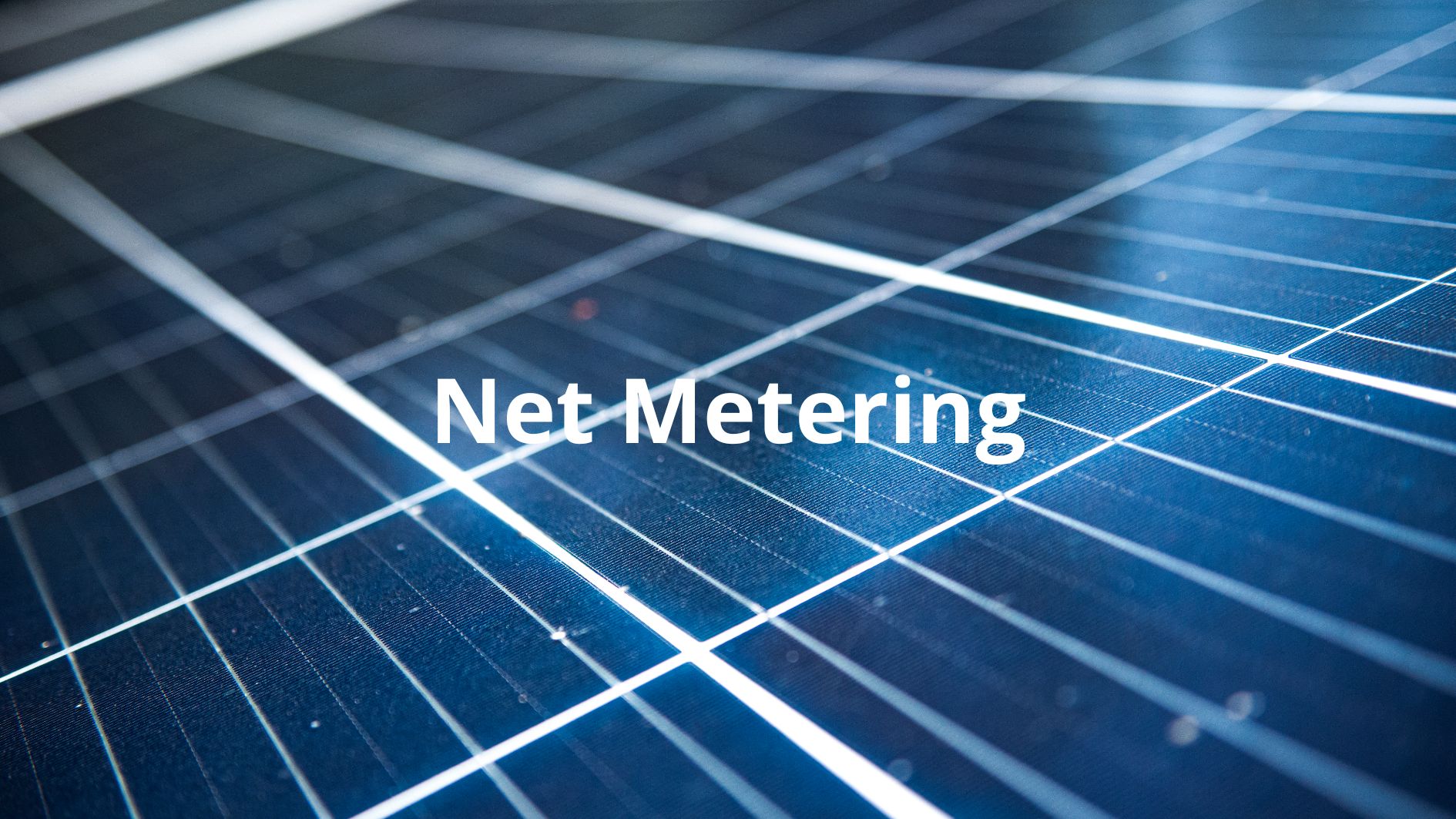Image source: Canva.com
Net metering is a crucial policy for solar energy users in Wyoming, providing homeowners and small businesses an incentive to invest in solar power systems by allowing them to receive credit for the electricity they generate. As solar energy adoption grows in the state, understanding how net metering works, its benefits, and the ongoing policy discussions surrounding it is key for both current and prospective solar users.
What Is Net Metering?
Net metering is a system that allows solar energy users to send excess electricity generated by their solar panels back to the grid in exchange for credits on their utility bills. In Wyoming, net metering applies to residential and small business customers with solar arrays of up to 25 kilowatts (kW). It provides a way for solar users to offset the cost of electricity by “banking” any surplus energy produced.
For example, if a home generates 1,200 kilowatt-hours (kWh) of electricity in a month but only uses 1,000 kWh, the extra 200 kWh is sent back to the grid. The utility then credits the customer for that 200 kWh, reducing the amount owed on their next electric bill. This credit is typically given at the retail rate, meaning solar users are compensated at the same rate they would pay to buy electricity from the utility.

Net Metering: Your Guide to Solar Energy Billing
How Net Metering Works in Wyoming
In Wyoming, net metering is governed by state law, ensuring that qualifying solar users receive credit for excess power they generate but don’t immediately use. The credit rolls over from month to month, allowing solar customers to benefit from their solar energy production even during times when their energy usage exceeds their solar generation, such as during the winter months.
However, at the end of each year, any leftover credits that haven’t been used are typically paid out at a lower, wholesale rate. This practice prevents customers from “overbuilding” their solar arrays to generate excessive credits, keeping the system fair for all utility customers.
Benefits of Net Metering

Net metering is one of the most important policies that support the growth of solar energy in Wyoming. Its benefits include:
Lower Energy Bills
Net metering allows solar users to offset their electricity costs by earning credits for excess energy production, reducing their utility bills.
Energy Independence
By generating their own power, net-metered customers rely less on traditional energy sources, which can lead to greater energy independence and resilience.
Environmental Benefits
Solar energy is a clean, renewable source of electricity. Net metering encourages more people to adopt solar, which helps reduce greenhouse gas emissions and reliance on fossil fuels.
Increased Solar Investments
Net metering incentives make solar installations more financially viable, encouraging more homeowners and businesses to invest in solar systems.
Wyoming Supreme Court Ruling on Net Metering
A landmark decision by the Wyoming Supreme Court on August 30, 2024, reaffirmed the state’s commitment to net metering. The court ruled against High Plains Power, a utility that had sought to change how net metering customers were compensated. The utility proposed switching from the standard monthly credit system, where customers receive credits at the retail rate, to a plan that would pay customers at the lower wholesale rate each month. This would have significantly reduced the compensation solar users received for their excess electricity, discouraging solar investments.
The court’s ruling preserved the retail-rate compensation structure, upholding the state’s goal of incentivizing solar investments by ensuring fair compensation for solar energy production. This decision was a victory for solar users and advocates, reinforcing Wyoming’s commitment to supporting clean energy initiatives through fair net metering policies.
Ongoing Debate and Challenges
Despite the court ruling, the future of net metering in Wyoming continues to be debated. Some argue that net metering policies force non-solar customers to subsidize solar users. Regulated utilities and electric cooperatives have pushed for reforms, suggesting that solar users pay less for grid infrastructure costs, which are then distributed to all customers.

On the other hand, solar advocates argue that the financial impact of net metering on non-solar customers is minimal, particularly in Wyoming, where solar adoption is still relatively small.
Legislators have considered reforming net metering laws multiple times, but no major changes have been implemented. Proposals to reduce the compensation rate or limit net metering eligibility have been met with strong opposition from solar advocates and the public, many of whom installed solar systems based on Wyoming’s existing net metering laws.
Future of Solar and Net Metering in Wyoming
As Wyoming continues to explore ways to balance renewable energy growth with the concerns of utility companies and non-solar customers, net metering remains a vital component of the state’s energy landscape. The Supreme Court’s ruling in 2024 underscores the importance of maintaining policies that incentivize solar energy while also ensuring fairness for all utility customers.
For those considering solar investments, Wyoming’s net metering program offers a reliable way to reduce energy costs and contribute to a more sustainable future. With federal solar incentives available and growing interest in renewable energy, now may be a good time for homeowners and businesses to take advantage of the benefits that net metering provides.
Wyoming’s solar industry is still in its early stages, but the state’s vast open spaces and abundant sunlight make it a prime candidate for future solar development. With continued support from net metering policies, Wyoming has the potential to see significant growth in small-scale solar energy, creating jobs, reducing carbon emissions, and enhancing energy independence across the state.

Net metering plays a crucial role in Wyoming’s solar energy landscape, providing financial incentives for homeowners and small businesses to invest in clean, renewable energy. The Wyoming Supreme Court’s decision to preserve the state’s net metering laws ensures that solar users will continue to be fairly compensated for the energy they generate, helping to drive further growth in the state’s solar industry. As the debate over net metering policies continues, one thing remains clear: net metering is key to Wyoming’s solar future.





